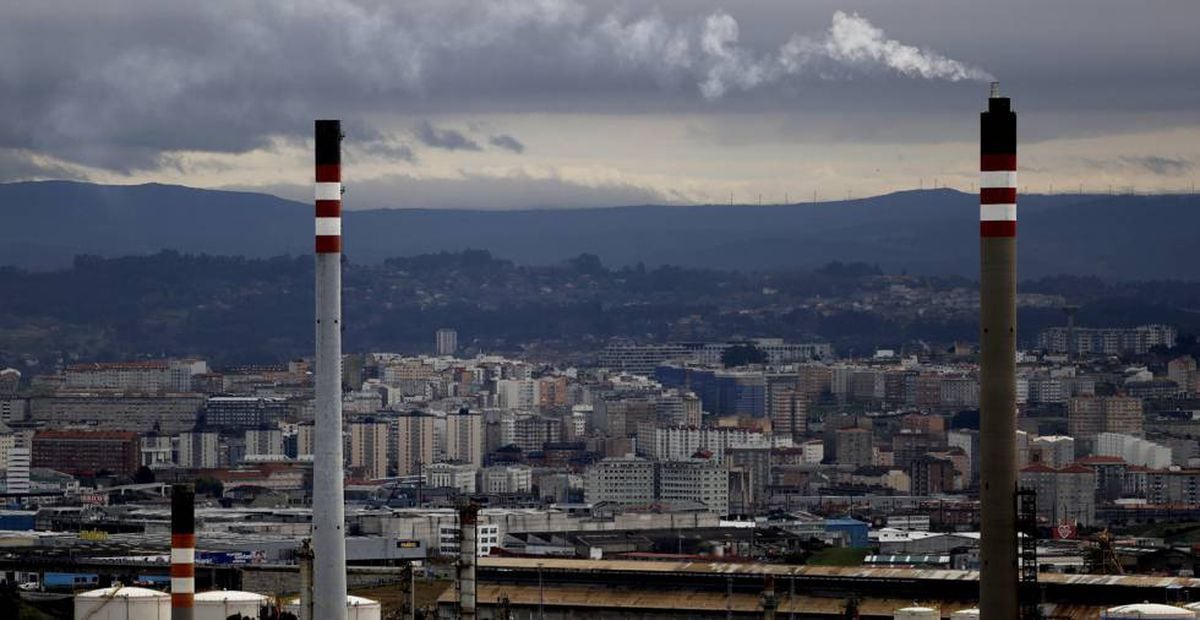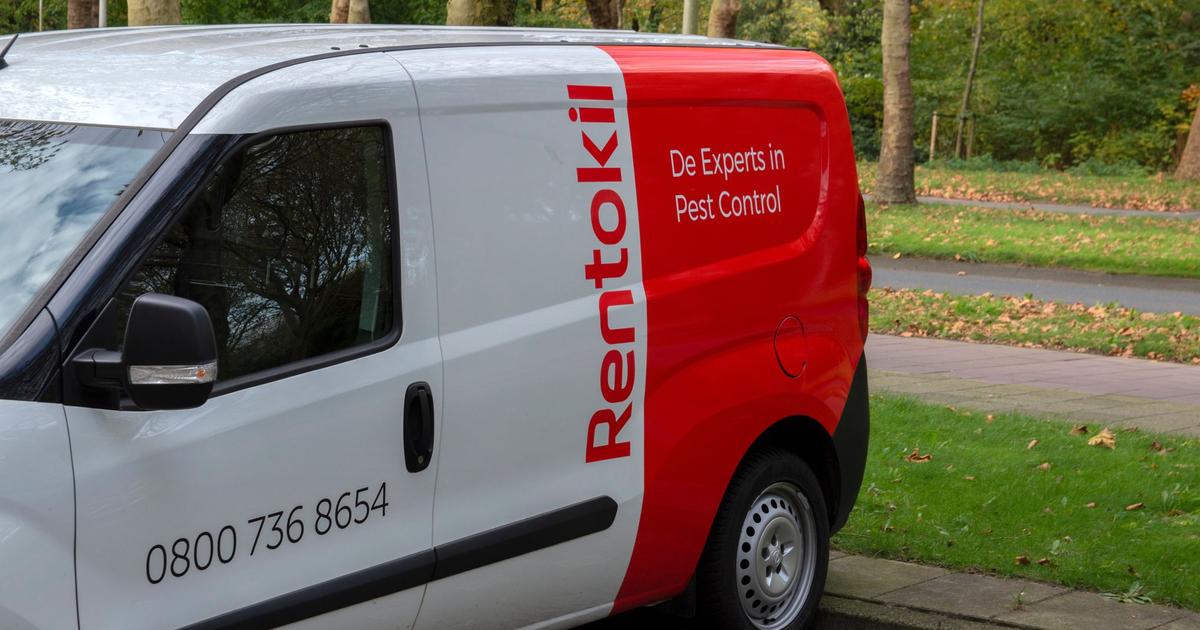The economist Helena Viñes (50 years old, Barcelona) is, surely, the greatest expert in Spain in green finance and
ecoposturing
(also known by the English term
greenwashing
).
She is a director of the CNMV (National Securities Market Commission) and was part of the group of 17 international specialists to whom António Guterres, Secretary General of the UN, commissioned the preparation of a guide to detect and combat ecoposture
.
of companies and institutions.
Since February, he has also chaired the European Commission's Sustainable Finance Platform, a group of experts that advise the EU and that was in charge of laying the foundations for the establishment of the green taxonomy.
This classification establishes the activities that can be considered sustainable in order to direct investments towards the fulfillment of the objectives of combating climate change and the environment.
The inclusion of gas and nuclear in certain cases, generated an important struggle within the EU.
Ask.
What do you think about gas and nuclear being considered as green energies in the taxonomy?
Answer.
Actually, they have not been classified as green, they have been classified in the European taxonomy in the category of energies in transition.
What the European Commission always says is that the taxonomy has to be evidence-based, but it must also be applicable both economically and politically.
Nuclear and gas do not enter the general taxonomy;
What does enter are some very specific activities related to gas, in this case the production of electricity, and nuclear under certain very strict criteria.
The devil is always in the detail, and when you look at the exact criteria, for example, for the production of electricity through gas, it becomes clear that there has to be a roadmap for the transformation of plants so that they produce the energy through renewables in the future.
Q.
How do we explain to the public the importance of taxonomy?
R.
The best example is food products.
Not so long ago you went to the supermarket and they sold you magnificent cereals that in two weeks left you with a great model's body;
or you had yogurts that regulated your entire digestive system;
or low-calorie peanut butter... And suddenly all that advertising and labeling changed because in Europe it was decided that the Commission was going to define what is scientifically healthy or low-calorie or low-fat.
It was decided that companies were not going to impose a specific amount of fat, salt, or sugar in their products, but they were obliged to inform the consumer of how much of that it contained and the recommended daily intake of these substances so that they the consumer can choose.
Well, the main objective of taxonomy at first was that:
Nobody forces you to market your fund or investment as green, but if you do, you have to report what percentage complies with the taxonomy, that it is official and that it has been created under scientific standards.
But the taxonomy is much more, because it serves as a measurement tool to see the degree of environmental sustainability of the investments, funds and activities carried out by companies.
And it is also a point of reference for the public sector and its investments.
of funds and activities carried out by companies.
And it is also a point of reference for the public sector and its investments.
of funds and activities carried out by companies.
And it is also a point of reference for the public sector and its investments.
Helena Viñes, at the CNMV headquarters in Madrid, on March 14.
Jaime Villanueva
Q.
In this context, how important is it to fight against
eco-laundering
or
eco-posturing
?
A.
It is important to avoid obvious
ecolaundering
or
ecoposture
.
In other words, it is necessary to distinguish between what are data problems or methodological understanding of what
eco-laundering
is .
Returning to the food example: if I go to a hamburger restaurant and I want something low in calories, I would order a salad.
But if you give me a salad and then put a sauce on it that adds more calories than the burger and fries, you're not selling me what I want.
The first reason to combat
eco-laundering
It is because the investor must be protected.
That is why it is so important to make it very clear what the objective of each investment fund is and what is the objective of a sustainable investment and its characteristics.
But, in addition to investor protection, it is also very important for entities.
For example, in the case of the commitments that a company acquires, such as those of reaching net zero emissions, they pay just for sinners.
These net-zero commitments have become very discredited because there are some companies that either ignore their promises or have committed and carry on as usual.
That makes people much more skeptical.
ecolaundering
_
It's also problematic because there are many consumers who choose a company because it supposedly lives up to their values.
And it is important for investors who invest in these companies thinking that it will help them with their own climate commitments... It is as if the companies were a person who commits to lose weight, that is, to take off that extra weight so annoying and harmful that are carbon dioxide and other greenhouse gases.
And they say that in December they will lose 10 kilos, but the months go by and not only are they not losing any kilos, but they are increasing, because they do not exercise and they continue to eat the same.
That has to be fought.
That's why,
One of the clear recommendations that the UN expert group made is that a net zero emissions commitment is incompatible with investments in new fossil energy infrastructure.
Because not only are you not reducing emissions, but you are creating new sources of emissions.
Q.
In other words, there should be no new exploitation of oil, gas and coal.
A.
Exactly.
All scientific studies show that 90% of the known reserves (those that are already evaluated and in the valuations of listed companies) cannot see the light of day if we want to meet the 1.5 degree objective of the Agreement on Paris.
In other words, we have a problem of overvaluation of the market and the valuations would need to be adjusted to the expectations that the existing reserves will not be able to see the light of day.
But if you increase them...
More information
The UN sets the rules against climate traps: a company is not 'green' if it continues to bet on oil or gas
Q.
Can the compensation of emissions —for example, that a company sells the gases it expels, compensate them with, for example, planting trees—, can they be considered the great back door through which eco-laundering is
slipping
?
R.
It is the topic that generated the most discussion in the UN group of experts.
When we talk about compensation, we are referring to non-regulated markets, that is, voluntary ones.
The important thing is to make it clear that these non-regulated compensations cannot count towards the achievement of the intermediate emission reduction objectives, because they are not real reductions.
It is very good that you also want to offset, but fundamentally you have to cut your emissions.
It is the same as in the salad example.
You have to be clear: say what you have reduced and what you have compensated.
Offsetting makes a lot of sense, but at the end of this race against climate change to offset residual and unavoidable emissions.
In addition, today, investing in compensation is very easy, because it is very cheap.
But that cannot prevent investment in technologies that reduce emissions or in transforming plants so that they do not emit greenhouse gases.
Because we are wasting precious time.
Helena Viñes, at the CNMV headquarters in Madrid.
Jaime Villanueva
Q.
In addition to being cheap, in many cases there is not much control over these supposed compensations.
R.
Yes, exactly.
The real impact on the ground is highly questionable.
There is a lack of transparency and in many cases the minimums that should have been met are not met, for example, permanence;
that is to say, that if trees are planted it has to be forever because if they are going to be felled later it will be of little use... In short, it has to comply with environmental rigor.
And the last point is the social.
There have been many accusations of human rights violations, such as displacement of populations.
But in the UN group there was a lot of debate on this issue.
At first I had a position from a European country, but thanks to my colleagues, I understood that compensation is also seen as a possible source of capital flows from developing countries.
We are talking about the climate financing that the North has promised and is still waiting for, such as the 100 billion dollars a year.
That is why it is important to reform voluntary carbon markets, so that they contribute to the sustainable development of recipient countries without exempting companies from their reduction obligations.
Q.
The CNMV has also set the fight against
ecoposture
as one of the objectives of its action plan for 2023 .
What are you going to do?
A.
We are still discussing it.
But, to begin with, we are going to collaborate with the European authorities, who are working on identifying what those practices are.
The idea is to collaborate to create that framework and then apply it in the supervision of funds that voluntarily market themselves as sustainable or with environmental characteristics.
Q.
The president of BBVA hinted in some public statements that, if the banking entities are over-pressured with the persecution of
greenwashing
, this could lead them to abandon their most ambitious climate goals.
What do you think?
A.
I think those financial companies that are committed and are really working on it should not worry.
Q.
Do you think that large companies have understood the importance of the challenge of fighting climate change?
R.
I think that there are, above all, executives and some company directors who have really understood it.
But there is still a lack of real awareness in many companies.
Some have understood it 100% and others still not so much.
The short-term issue is key here, because many companies sometimes have other short-term priorities.
There is still in many companies, and in a large part of the population, that feeling that climate change is a long-term problem.
But it is not like that and in Spain, for example, the last two summers have helped a lot to make the population aware that it is not like that.
You can follow CLIMATE AND ENVIRONMENT on
and
, or sign up here to receive
our weekly newsletter
Subscribe to continue reading
Read without limits
Keep reading
I'm already a subscriber

/cloudfront-eu-central-1.images.arcpublishing.com/prisa/CKW3F4PXFZFH3ECQ3VBPW73FK4.jpg)

/cloudfront-eu-central-1.images.arcpublishing.com/prisa/I5QVHIQITJED5JXFONRYR33O2I.jpg)











